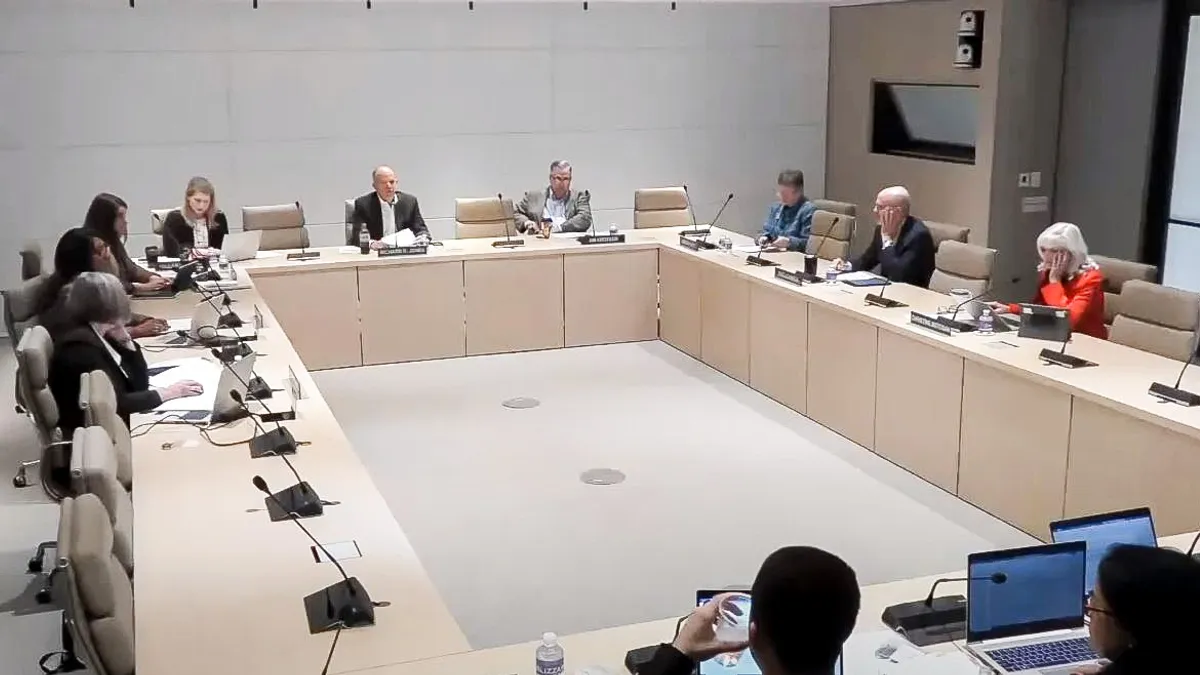As more analysts forecast a recession, CFOs and other members of the C-suite are left examining how economic pressures are impacting key processes inside their organizations. Sixty percent of CFOs said inflation was a top concern when it comes to account receivables, for example, according to a recent study by AR software provider Versapay.
The study, released Sept. 27 at the beginning of the Oracle NetSuite’s user conference SuiteWorld, found innovating their AR and the overall invoice-to-cash (I2C) process could help members of the C-suite to better respond to inflationary pressures, reducing issues with cash flow.
The opposing pressures faced by CFOs and other executives will likely lead to an uptick in interest in AR innovation, Craig O’Neill, CEO of Versapay said in an interview.
“There’s more pressure to do something to speed cash flow and streamline their processes,” O’Neill said of executives looking to guide their companies through the current environment. “ At the same time, they've got pressure to watch their costs, not layer on new IT projects and so on.”
While Versapay has yet to see such an uptick, demand has not dropped for the company, O’Neill said, and interest surrounding AR projects and other initiatives to improve cash flow is increasing.
Tapping both digital transformation initiatives and taking steps to improve the customer experience element of their AR processes could be key ways for executives to bolster their firms as recession looms. Executives are paying close attention to the customer experience when it comes to their business-to-business payments, according to the survey; 90% of CFOs agreed with the statement that “the C-suite is only as good as their customer experience.”
“We think that's actually a combination of the current climate, but also the pandemic and the period of time where so many people were working remotely and so on,” O’Neill said of the focus on the customer experience element. “It's just really highlighted to CFOs and other leaders that they need to think about the digital experience for customers.”
Predictions of recession have increased over the past few months, with some recent data suggesting the U.S. will face a period of long-term stagflation — or near-zero economic growth — if the Federal Reserve is not able to bring inflation down to its 2% target.
While CFOs flagged inflation as their top worry, financial leaders also pointed to labor shortages and rising interest rates as chief concerns for AR, the study of 1,000 C-suite executives found. Fifty-eight percent of CFOs identified rising interest rates as a worry for AR, while 48% pointed to labor shortages.
Meanwhile, issues with supply chains have persisted into a post-COVID economy, leaving CFOs and their colleagues in the executive suite grappling to keep profit margins steady while production and material costs increase. Supply chain disruption is the main worry across the C-suite, the study found, with 49% of executives indicating it as their highest concern.
Prioritizing the AR customer experience element
Pushing forward with digital transformation efforts surrounding AR processes is one way that CFOs could reduce costs. Such efforts would reduce a lag in payments and other liquidity challenges caused by disrupted supply chains.
The impact of the pandemic has also contributed to the dawning importance of digitization in this space for executives, especially as the trend of remote work persists; business leaders “can’t assume any longer that their customers are in their offices and working the way they used to work,” O’Neill said. “That's really beginning to drive how they're thinking as well.”
Yet it is also critical for financial and other executive leaders to consider the customer experience angle surrounding AR and the collective I2C process — executives agree the I2C process can impair the customer experience, something that will in turn crimp cash flow, according to the study.
Seventy-seven percent of CEOs agreed I2C can do so, while 69% of CFOs said the same. Such an issue can become a larger problem for companies facing down a recessionary environment, when customer retention and acquisition become increasingly vital.
Continuing digital transformation efforts
Executives also agreed that conflicts or confusion during the I2C process have resulted in lost revenue, with 89% of Chief Operating Officers, 86% of CEOs and 79% of CFOs agreeing with the statement, according to the report. Taking steps to ensure the I2C process remains smooth could therefore provide clear financial benefits to businesses, especially in the event of a recession.
Digitizing these processes with a satisfying customer experience in mind should therefore be a key priority, but many executives indicate their organizations have lagged behind in this area. Seventy-three percent of executive leaders overall agree there is more work to be done when it comes to their AR digitization efforts.
However, while 72% of C-suite executives acknowledge their AR department is not customer-oriented, 93% also say that implementing the right technology in this area could help fix such issues. Ninety-four percent of CFOs in particular agree that the right technology could strengthen customer relationships during the I2C process, according to the study.
The need to balance a more streamlined AR process with the need to cut back costs on such projects “cuts both ways” for financial leaders, O’Neill said. Ultimately, though, the company believes that “in this sort of climate, the pressure to make working capital more efficient” is going to win out over the next 12 months.
“The efficiency projects...will get a lot of priority, and maybe the growth-related projects will take a back seat for a little while,” he said.





















